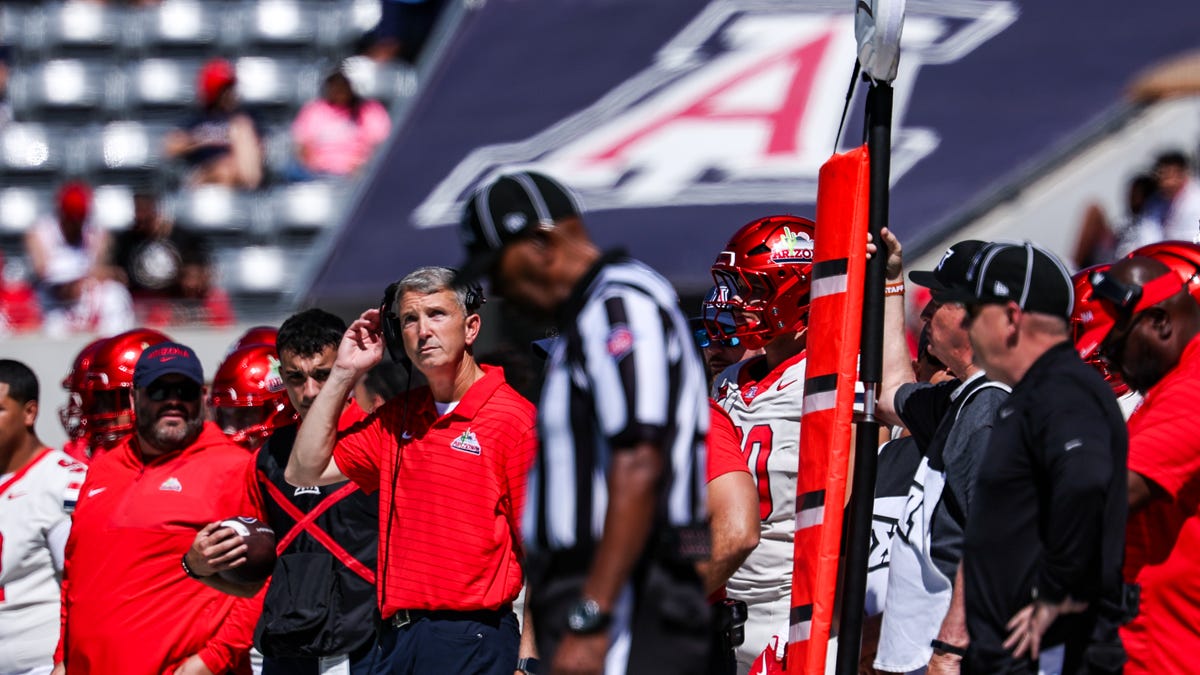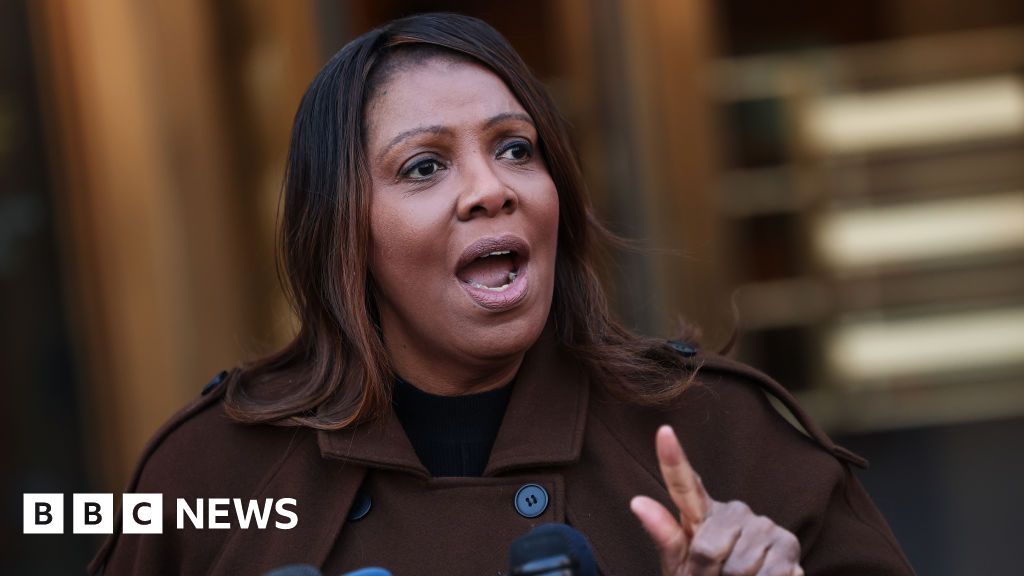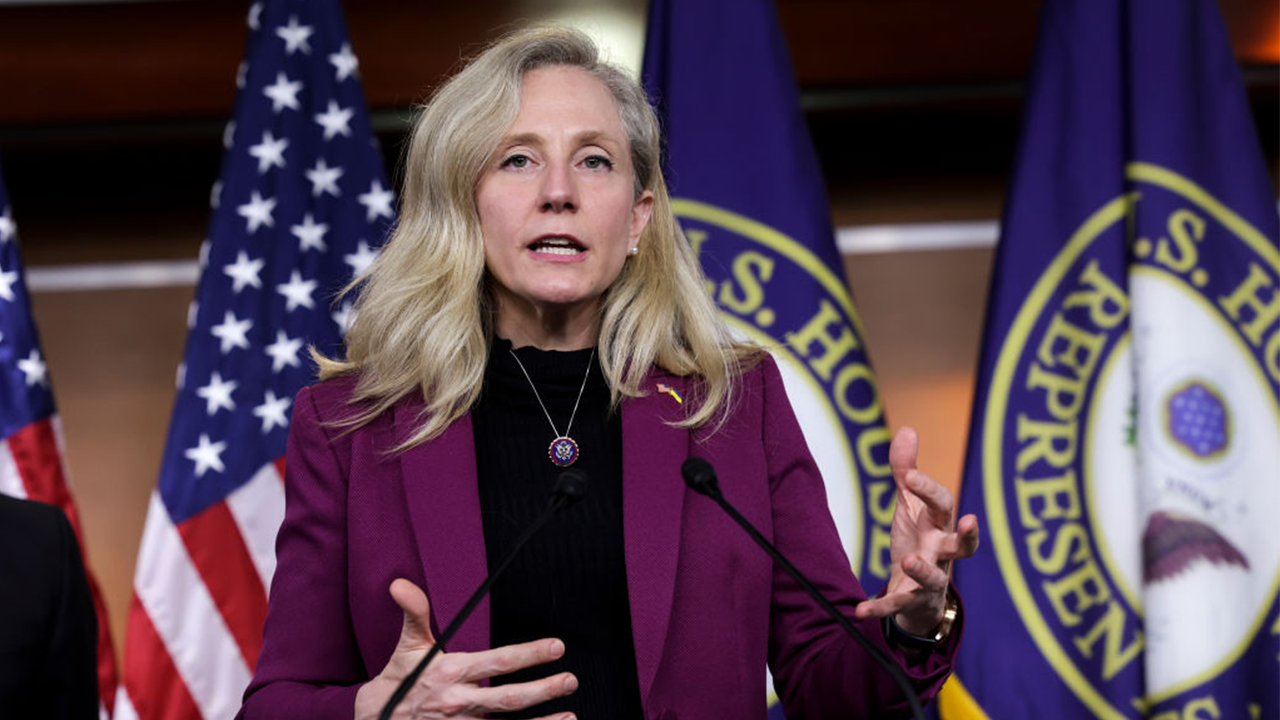CLEVELAND, Ohio — Ohio’s new anti-porn law is barely a week old, and already Attorney General Dave Yost says nearly every major site is blowing it off — daring him to prove they’re not above the law.
We’re talking about the state’s crackdown on porn sites, the legal loopholes they’re hiding behind, and what comes next for enforcement, on Today in Ohio.
Listen online here.
Editor Chris Quinn hosts our daily half-hour news podcast, with editorial board member Lisa Garvin, impact editor Leila Atassi and content director Laura Johnston.
You’ve been sending Chris lots of thoughts and suggestions on our from-the-newsroom text account, in which he shares what we’re thinking about at cleveland.com. You can sign up here: https://joinsubtext.com/chrisquinn.
Here’s what we’re asking about today:
How many of the major porn websites, and there are a lot of them, obeying Ohio’s new law requiring them to verify the ages of users?
How long have we been talking about the very corrupt HB6 and the biggest Statehouse bribery scandal in Ohio history? Long enough for people convicted in it to get out of prison. Who just got out?
Remember the photo stories we did in recent years and the wretched state of some Cleveland playgrounds and parks? How would you like to have your name on one? The Widget Company presents the rusty seesaw without seats, the tilted sliding board, the swings with the busted chains? What is Cleveland’s hope for getting some of these eyesores repaired?
Northeast Ohio has seen some bad pedestrian accidents in recent days. Where were they, and what is causing them?
Mentor has a ban on short-term rentals, which rankles some property owners who would like to get some cash from their homes. What’s the plan that might help?
Just as Donald Trump and Congress wipe away federal funding for public broadcasting, we get a study showing how many children watch it. What are the numbers, and are they believable?
Music is big in Ohio. It’s one reason that Mike DeWine prominently features it in outdoor speakers next to rest area sidewalks. Orchestras. The Rock Hall. Famous small venues. Blossom. How much do music venues generate for the Ohio economy, and what is the irony inherent in that?
A downtown Cleveland hotel is the only one is that state to receive one of the most prestigious awards a hotel can get, and I’ll bet most people have not yet heard of this place. What is it, and what’s the big honor?
Getting Back to FirstEnergy, how did the utility waffle on a pledge to Lorain County, and how much will that cost taxpayers?
We have an Apple podcasts channel exclusively for this podcast. Subscribe here.
Do you get your podcasts on Spotify? Find us here.
RadioPublic is another popular podcast vehicle, and we are here.
On PodParadise, find us here.
And on PlayerFM, we are here.
Read the automated transcript below. Because it’s a computer-generated transcript, it contains many errors and misspellings.
Chris Quinn (00:01.326)
We’re talking porn websites on Today in Ohio, the news podcast discussion from cleveland.com and the Plain Dealer. I’m Chris Quinn here with Courtney Astolfi, Lisa Garvin and Leila Tassi. Lisa, how many of the major porn websites, and there were a lot more of them than I knew, obeying Ohio’s new law requiring them to verify the ages of the users?
Lisa (00:25.661)
Yeah, so a review by Attorney General Dave Yost in the wake of that law that took effect requiring age verification before entering porn sites. He looked at 20 of the biggest porn sites. Only one has complied so far. Sites with obscene or harmful content are supposed to verify that their users are 18 and older with either a photo ID.
or some sort of records like education, mortgage or employment records. And Yo says, just clicking on the I’m 18 or over button just doesn’t work. So he says it’s time for these companies to explain why they think they’re above the law. So Pornhub parent company, ALO, told Mashable that Ohio’s law doesn’t apply to them because they’re known as an interactive computer service.
That’s a legal term that’s being used to protect large platforms like Metta and so forth from liability for user generated content. Now, Ohio’s law says that the age verification does not apply here, but other states don’t have that designation and they have shut down Pornhub successfully in their states. So back in June, the United States Supreme Court upheld Texas age verification law.
because it doesn’t directly regulate adult speech. Now non-compliant companies says Yoast have 45 days to comply or they’re gonna be sued.
Chris Quinn (01:51.298)
Yeah, I knew this was coming over the weekend when I saw a story, I think it was in the Cincinnati Inquirer, in which the Pornhub parent company said, this doesn’t apply to us. mean, your name is Pornhub. Of course it applies to you. So I figured Dave Yost would see that and go, my, and go and look and see if anybody was doing it. The problem is, is that by requiring people to provide full identity licenses and things,
People leave a trail and they’re not going to trust these porn companies not to keep their data secure. So it pretty much does drive them out of business. I think that’s why they don’t want to follow it. But as the Supreme Court said, the state has a right to make sure we’re protecting kids from this kind of material. And this is the way the state wants to do it. I just was surprised at the ridiculous claim that
Yeah, this doesn’t apply to us. We’re a data company. It’s like, you’re Pornhub. It’s in your name what you are. And let’s face it, for years, that’s been the number one. Anytime you see a story about online porn, you see Pornhub. I just was surprised the attorney general knew there were 19 others. I couldn’t have come up with 19 others. What are they doing in that office?
Lisa (03:06.589)
But I think this hinges on that legal definition, interactive computer service. You know, are you interacting with Pornhub? I mean, I don’t know how they draw that legal line, but Ohio’s law, you know, exempts interactive computer services from age verification. So there’s a loophole there.
Leila (03:06.918)
I’m
Chris Quinn (03:24.142)
Yeah, and I don’t know why they did that. I don’t know. mean, what are they trying to exempt if it’s harmful material to miners? Why is there any exemption and Matt Huffman, I think as much as said so that, OK, if that loopholes there, we’ll have to close it. And I think he said they could do it by November. Right. Yeah. OK, you’re listening to Today in Ohio. How long have we been talking about the very corrupt HB six and the biggest statehouse bribery scandal in Ohio history?
Lisa (03:41.553)
Mm-hmm, correct.
Chris Quinn (03:53.502)
long enough for people convicted in it to get out of prison. Courtney, who just got out?
Courtney (03:59.252)
Yeah, Matt Borges. Gosh, it just seems like that time went by way too quickly. The former Ohio Republican Party chair turned lobbyist has been released from prison after serving less than half of his five-year sentence for his role in the HB6 scandal. So Borges was moved Wednesday from a minimum security prison in West Virginia, which is where he’s been spending the last couple years. And he’s now at a halfway house in Cincinnati.
Going forward, he’s going to spend either a year at that halfway house or confined at his home in suburban Columbus. And then he’ll have another year under probation. And then he’ll be at the end of his punishment for this. And the reason that Borges was popped loose a little early into that halfway house is because of the federal first step act. That law lets inmates shave time off their sentences if they take part in rehab and education programs. Borges apparently did that and took advantage of that option.
But interestingly, you we learned about all this because Borges sent a letter to his wife, Kate, and she’s been posting updates from him on her blog. So that’s where all this info came out.
Chris Quinn (05:08.056)
What struck me about this is how much he embraced the system’s ability to get them out early. And if he would have embraced the system in the front end, they just wanted to make a deal with him. I don’t think he would have been sent to prison at all, but he threw down. He made them go to trial. They had the goods, they convicted him. But maybe the idea of being behind bars finally forced him to say, okay, okay, I’ll embrace the system. I never understood.
why he did not just work with the investigators. don’t think he was ever a chief target.
Courtney (05:44.724)
Yeah, you talk about him working with the system. So these things that give you credits that let you get out early under this federal act, you know, the programs that board just would have had to participate in. This was just interesting to me. Apparently, according to that blog, while he was in prison, he was teaching classes on yoga, on writing and on outer space. Apparently, he also spent time working on the prison’s ranch.
We also heard about, ahead of his release, this blog said he’s described how his fellow inmates who were working with him at that ranch got him an ice cream cake apparently as a farewell gift. Wild detail.
Chris Quinn (06:22.478)
Yeah, well, I he was a small player and he did get convicted, but I just was surprised like you that that it’s already time for people to be getting out. Not the big players, but small timers.
Courtney (06:38.838)
Yeah, Larry Householder here still serving his 20-year sentence.
Chris Quinn (06:42.506)
Yeah, he’s hoping for a pardon. And with this president, who knows? You know, listening to Today in Ohio. Remember the photo stories we did in recent years and the wretched state of some of Cleveland’s playgrounds and parks? How would you like to have your name on one? The widget company presents the rusty seesaw without seeds, the tilted sliding board, the swings with busted chains. Laila, what is Cleveland’s hope for getting some of these eyesores repaired?
Leila (07:09.407)
Well, City Hall is now hoping corporate sponsorships might help polish up some of these eyesores. Mayor Justin Bibb, he just hired a Cleveland firm called the Superlative Group to study whether selling naming rights for city parks, rec centers, and maybe other public spaces could bring in some real money for repairs. So it would be something like the James Hubbard Glenville Rec Center presented by Company X.
The city’s paying $305,000 for this consulting work. The first phase, which would cost about $125,000, is basically a reality check, which parks or buildings might actually attract sponsors. If that looks promising, then another $180,000 kicks in for Superlative to start coming up with deals and reaching out, I guess, to potential sponsors. So the firm has worked on naming rights deals that have
hold in billions over the years, including at Progressive Field and with the Cleveland Clinic. But the catch is that sponsors often want control over how their money is spent. maybe they want it to fund a specific project or something like that. And city council has already insisted that it will get to approve every deal and see regular revenue reports. So we’ll see how this plays out.
Chris Quinn (08:29.762)
Yeah, I’m not sure what the attraction is. These aren’t the most visible places. I remember for years, Ken Johnson’s name, the corrupt city councilman, his name was on the rec center on Woodland. But, but maybe if they’re looking to do good, then this is their company’s do good week. Let’s sponsor a rec center. Let’s clean up a playground. Maybe that’s it. I just don’t see them. It’s not like putting your name on the football stadium.
Leila (08:57.34)
Right.
Chris Quinn (08:57.928)
Cunnington Bank or Progressive did. These are very low visibility things and you know you kind of count on the city to take care of them which the city has not. When we took photos of these things they were gross. I it was the kind of thing where kids playing there could get splinters and things were just run down. Even lacking paint. So if I’m a company and I give the city money to fix this up and they make it all sparkly
You gotta keep it sparkly or I don’t want my name on it.
Leila (09:29.311)
That’s right. mean, Bibb is hoping. To put this in perspective, know, Cleveland gets $200,000 a year from the Huntington Convention Center naming rights deal. So this is obviously going to be a sliver of something like that. But he’s hoping that this would become a source of revenue that could be enough to help carry out the 15-year Parks and Rec Master Plan that calls for upgrading and possibly consolidating some rec centers, though council bristled at talk of closing.
facilities or raising taxes or anything like that. But yeah, that really is the key question is, know, the parks have really suffered from years of deferred maintenance. New funding streams are really hard to find. Naming rights are kind of a temporary fix. They don’t address the deeper problem. If Cleveland still lacks a sustainable revenue source that’s dedicated to parks and rec. So if we want these safe, well-equipped playgrounds, I’m not sure that corporate logos alone will cut it.
it’s going to have to be a big or good discussion.
Chris Quinn (10:27.926)
Yeah, we’ll see. We’ll see what the study comes back with. Maybe it’ll come back and say, yeah, nobody’s going to do this because nobody wants their name affiliated with these things. You’re listening to Today in Ohio. Northeast Ohio has had some terrible pedestrian accidents in recent days and weeks. Lisa, where were they and what are officials doing to try and stop this tide?
Lisa (10:47.813)
And ironically, October is National Pedestrian Safety Month, but it’s gotten off to a rocky start in a couple of cities. In Rocky River, there have been three accidents involving young kids on bicycles in the last three weeks. Two of the three kids had severe injuries and broken bones. Two of the drivers involved were teenagers. And in Westlake, 83-year-old crossing guard Joe Lazar died of his injuries after being struck by a car that was driven by an 80-year-old woman that was right outside the police station.
station at Dover and Hilliard. So both cities are now stepping up their efforts to curb this. They’re stepping up education and enforcement. They’re also looking at e-bikes and scooters. say that’s an issue. We’ve talked about that on our podcast here and also aggressive driving. Westlake Police Chief Captain Jerry Vogel is using social media, community outreach and targeted enforcement
They’re using digital speed limit signs in high traffic areas to alert drivers and to collect data about what people are doing in that area. Rocky River Police Chief, George Lichtman said he has a three-prong approach. They’re using education, visibility, and infrastructure improvements. They’ve installed six radar units, adding flashing beacons at crosswalks. They’re testing speed cushions in some areas.
And there also been accidents in other cities recently. Ravenna had one, Euclid had one, and Cleveland had a couple.
Chris Quinn (12:14.83)
Well, this comes on the heels of our story about the dangers of e-bikes, which are just expanding in huge numbers in the suburbs. When I was a kid, the police would come in every couple of years and the school would have an assembly where a couple of officers would get up front and talk to kids about their bike safety and how to avoid getting hit. Leila, you’re the only one here with kids in school. Is there anything like that today? Do they have assemblies with police where they talk about
Lisa (12:18.791)
Mm-hmm.
Chris Quinn (12:43.576)
kids safety on the roads.
Leila (12:45.373)
that I’m aware of. haven’t heard of anything like that come up among my kids.
Chris Quinn (12:51.118)
It was smart. We paid attention. Actually, they had a cop who was very personable with kids could make us all laugh. But I remember paying attention to it. you know, I was I was a distracted kid. So it worked. But I just this is super dangerous because if a kid’s on a bike and the car is going to hit the kid, the kid’s going down. mean, the driver of the car is never the one that suffers those injuries. And these are kids just driving to school. It’s frightening to to.
Consider the broken bones and the trauma and the fact that they could die.
Lisa (13:24.805)
Well, and, but a lot of it is distracted drivers. I used to work in the Texas Medical Center and I learned never to cross in front of a car, even if I had the right of way, unless I had eye contact with the driver, especially people turning right, they’re not looking right, they’re looking left. And so you have to be really careful. So kids not only have to be safety for themselves, but they have to pay attention to what the drivers around them are doing.
Chris Quinn (13:49.336)
But that’s
Leila (13:49.344)
That’s a good point. know, I wanted to say every time my kids leave the house on their bike, the last thing I say to them is assume that everyone in their car is not paying attention. Just assume it. don’t, they pretend or just assume they don’t see you because they’re on their phone.
Lisa (14:01.159)
Mm-hmm.
Lisa (14:06.439)
Mm-hmm.
Chris Quinn (14:08.44)
But that’s exactly the kind of thing that an assembly with the police officer could do. They could even do a demonstration as somebody not making eye contact with the kid. It would just, it would reinforce the message. And I get the feeling that we’re not doing enough of that as we did in the old days.
Leila (14:26.343)
And that would be a good setting to also talk about e-bike safety.
Lisa (14:30.138)
Mm-hmm.
Chris Quinn (14:30.422)
Right, right. Unless we make them be licensed, which we should. You’re listening to Today in Ohio. Mentor has a ban on short term rentals, which rankles some property owners who would like to get some cash from their homes. This is one of those themes that put pits, what is a neighborhood versus property rights. Courtney, what’s the plan to help?
Courtney (14:51.424)
Yeah, mentors looking at legislation where it could soon scrap that rental ban. That’s pretty new. That ban’s only been in place since March and they put it in place back then in response to different residents’ concerns. But this has clearly been top of mind over the summer. The city kind of revisited the dynamics around letting, you know, short-term rentals like Airbnbs and Verbos operate in their city.
They’ve now decided they don’t want to keep that ban indefinitely. They’re, they’re looking at putting some kind of allowances in place, but still having a lot of like limits and caps around it. So if mentor city council votes to lift this ban later this month, what they’d replace it with is a system that caps the number of Airbnb like places around the city to 32 per year. So that’s a pretty small number. They hope that.
By limiting it to that size, it won’t get too out of hand and, and wrinkle residents. But there’s also some other rules around this that that’ll also be key. I mean, there’s things like there’s largely no street parking for these homes. If this passes, there’s also, you know, rules where someone who’s responsible for the property who has to be within basically a 30 minute drive 24 seven in case something goes awry.
And they’ve also got bands on things like weddings and parties.
Chris Quinn (16:17.1)
Yeah, this does get at the heart of what a neighborhood is. When you buy a house in a neighborhood, you’re not thinking that the house next door is basically a hotel or an Airbnb kind of thing. And it does change the nature of your neighborhood. Lisa has just spent a lot of her resources making a chancre la in her backyard. But if all of a sudden the house next door is a daily rental where you never know who’s coming or going, could
change the whole face of the neighborhood. So it’s a tough one because you have property rights as an owner, but your neighbors have rights too to live in the neighborhood they thought they were buying into, yeah?
Courtney (16:59.544)
Yeah, I mean, I can see those limits definitely making sense in, my neighborhood. There’s one like kind of kitty corner to my home and everyone there is kind of quiet and it’s not been an issue, but I can see problems, you know, jumping up if there were five in a row down the street, you know, that concentration seems to be. You know, what mentors aiming to fix here by capping it with just 32 across the entire city. So I wonder if that’ll strike the right balance here.
We heard from one resident at a recent city council meeting, Brian Epp, who was definitely in favor of loosening these restrictions. He described the outright ban that mentors lived under since March as quote, heavy-handed government at its worst. He described it as kind of stifling opportunity here. And he thought the ban was attempting to solve a crisis that didn’t exist from his perspective.
Chris Quinn (17:52.244)
Except what was it last week? We had a party at one of these short-term rentals in Cleveland in which somebody was killed. So if somebody rents one of these with ill intent to have a party or something, it can very easily get out of hand. You’re listening to Today in Ohio. Just as Donald Trump and Congress wipe away federal funding for public broadcasting, we get a study showing how many children watch it. Lela, what are the numbers and are they believable?
Leila (18:21.599)
Yeah, this new Ohio State University study really puts the recent cuts to public broadcasting in perspective for us. Researcher Rebecca Doar at OSU’s Kreen Center found that nearly half, about 45 % of all educational TV and video content watched by first graders in Ohio comes from PBS. The next closest source was Nickelodeon. They barely crack 14%. And then YouTube comes in at around 9%.
So when Congress and Donald Trump wiped out 1.1 billion in public media funding this summer, that hit right at the heart of where kids are actually getting their educational programming. The Corporation for Public Broadcasting, which distributes that money to PBS and NPR, is now winding down completely. Layoffs are already happening at local stations, and some are preparing to shut down altogether. So Dora told Cleveland.com that PBS is not just another media brand.
competing with Disney or Nickelodeon. It’s more like a public school for the mind, guaranteeing access to free research-backed educational programming, no matter a child’s background. And she worries that without it, kids, especially in under-resourced communities, will be left with far less educational content. What’s striking is how broad PBS’s reach is. Doors earlier research showed…
no major gap in educational media use by family income or parents’ education. So in other words, know, PBS is kind of this great equalizer. It’s what every kid can turn to regardless of circumstance.
Chris Quinn (19:54.956)
Yeah, my problem is I got a couple of grandkids and they don’t fit this pattern at all. They never watched PBS and there’s so many other places now where children’s programming is available, quality children’s programming that they just weren’t there. And I have a hard time buying that this is as overwhelming a majority of the programming as they say it is. You’ve got three kids. How much time did they spend with PBS?
Leila (20:20.767)
Yes. Well, all right. That’s an interesting question because I think it’s interesting that the OSU data show that only about 12 % of media first graders consume is educational at all. So we’re talking about like you’ve got the world of media, 12, tiny sliver of it is educational, but then a pretty big of that pie, pretty big portion of that pie is PBS. And I believe that that’s probably true because I really want to know what outside of PBS,
Chris Quinn (20:33.527)
Right.
Leila (20:50.217)
your grandkids, what’s the educational programming they’re watching? Because I have yet to find truly high quality or any educational programming outside of PBS. So my kids are, I have a teenager, a tween, and then a five-year-old. When my older kids were little, they watched PBS. But my little one will watch whatever the older kids are watching, and there’s no educational programming going on in this house.
Chris Quinn (21:02.314)
Chris Quinn (21:17.422)
I would argue things like Bluey or educational programming, but okay you’re you’re saying is we’re talking about a tiny piece of the pie that they dominate which
Leila (21:28.775)
Right. Yes. And I think that’s absolutely true. And I PBS has the highest quality educational programming. Bluey, you’re right. You’re right about Bluey. But that is just one show on, there’s a lot of crap on, what is that, Disney, right? Yeah.
Lisa (21:37.36)
Well, in so-
Chris Quinn (21:40.95)
Yeah, I know, there’s a lot of garbage. Yeah, there is quite a bit. Yeah, my numbingly dumb. Lisa?
Lisa (21:41.627)
Right.
Lisa (21:45.405)
Yeah.
Leila (21:47.888)
Lots.
Lisa (21:49.285)
No, I was just going to say the thing with PBS is that the educational content is aggregated in one place. So you have one channel where you can go to find it.
Leila (21:55.454)
Yes.
Chris Quinn (21:58.414)
Okay, you’re listening to Today in Ohio. Music is big in Ohio. It’s one reason that Mike DeWine prominently features it in outdoor speakers next to rest area sidewalks. We’ve got orchestras, the rock call, famous small venues, Blossom. Lisa, how much do music venues generate for the Ohio economy? And what’s the irony inherent in
Lisa (22:21.191)
Yeah, it’s quite a bit of money according to the National Independent Venue Association or NEVA. They did a first of its kind study on the economic impact of independent venues, festivals and promoters in the United States and Washington DC. The report is called The State of Live. So in Ohio, we’re actually number nine nationally across nearly all economic indicators. It equaled three.
billion of total economic output across 312 venues, 1.5 billion to the gross domestic product of Ohio, over 21,000 jobs, 951 million in wages and benefits, and 5 million fans enjoyed what was being put out by these venues. It also generated 122 million in state and local tax revenue. But
Only 20 % the report found of these venues were profitable last year. That’s in Ohio. The national average is 36%. So we’re 16 points behind, but not much better in surrounding states. It’s 28 % in Pennsylvania, 22 in Illinois, and 19 % in New York. Sean Watterson, who’s the Happy Dog owner and chair of the Nevo Ohio chapter, he says he’s urging support for Senate Bill 186.
which would establish an Ohio Live Music Fund to sustain all these small businesses. And the report also highlights that they really need to curb the preferential treatment of big promoters like Live Nation and enact ticket resale price caps to avoid price gouging.
Chris Quinn (23:59.458)
Yeah, you’ve really got to love, I guess, this industry to stay in it because the margins are so thin. It’s like running restaurants. It’s a frightening number. mean, 20 % of Sovncy, that’s pretty bad. And I’m sure that the bulk of those that are not are the much smaller venues. I’m sure Blossom is doing fine and some of the big ones are doing fine, but the Agoras and Bop Stops and things like that probably are tight.
Lisa (24:09.531)
Mm-hmm.
Lisa (24:29.851)
It’s a shame that we didn’t have a baseline report before the pandemic, because I wonder how the pandemic has affected. mean, we lost Nighttown during the pandemic. The Bop Stop took a long time to come back, Brothers Lounge as well. yeah, it would have been interesting to see what the baseline was pre-pandemic.
Chris Quinn (24:47.222)
Yeah, to see if they’re doing a little bit better. You’re listening to Today in Ohio. A downtown Cleveland hotel is the only one in the state to receive one of the most prestigious awards a hotel can get. And I’ll bet most people have not heard of this place. Courtney, what is it? What’s the big honor?
Courtney (25:04.376)
Yeah, this is the fidelity hotel and like a lot of folks, I also was unfamiliar with it, but it earned this Michelin key, which is basically the hotel world’s version of a Michelin star. This 97 room hotel on East sixth street, like you said, is the only recipient of this award in Ohio. And, you know, it makes sense that maybe this is a little new to us because this Michelin key program is new. launched just last year.
And what it’s trying to do is recognize hotels for, you know, overall experience, things like outstanding design and service and everything that goes into a nice hotel stay. Only 317 hotels across the U S made the cut and fidelity is ranking, receiving one key that’s defined as they off, they offer a very special stay. That’s how Michelin describes it. And what these inspectors do is.
They do anonymous stays at hotels. They grade them on things like architecture, design, service consistency and quality, just like little ambiance things like personality, character, and even looking at value for the price and kind of the hotel setting, how much it kind of adds to the neighborhood around it, which I thought was an interesting addition. In the review for the Fidelity, Michelin described it as confidently nostalgic.
And it liked its setting at the edge of that former short Vincent neighborhood, which back in the day was a nightlife hub.
Chris Quinn (26:35.106)
What was this place before it was a hotel?
It’s not a new building,
Courtney (26:41.24)
No, it was the 1920s fidelity mortgage building. So yeah, pretty cool. And there’s only a couple other in the Midwest that the fillet fidelity joined. There was one in Detroit, and a few in Chicago. So pretty special. have one here.
Chris Quinn (26:47.672)
Huh, interesting.
Chris Quinn (27:00.334)
All right, you’re listening to Today in Ohio. Let’s get back to First Energy. How did the utility waffle on a pledge to Lorain County and how much will that cost the taxpayers there, Leila?
Leila (27:11.253)
man, this is a real mess. Lorain County thought that it had everything lined up for a major sewer expansion along State Route 82 in Columbia Township. The county had already met with First Energy. They got their approval for where the sewer would go and they even paid the utility to secure the poles along the route. But partway through construction, First Energy suddenly changed its mind. The company decided that the work was too close to its overhead power lines and
pulled its approval, forcing the county to redesign the entire project on the fly. So instead of running the sewer line beside the road as originally planned, crews had to move it directly underneath the pavement. And that’s a long-term maintenance nightmare. When pipes are buried under asphalt, every future repair means tearing up the road. So the fallout here is more than $640,000 in extra costs, pushing the project to nearly $2.8 million total. Commissioners say they didn’t have a choice, but…
to keep going and a nearby housing development was depending on that sewer connection for occupancy permits. So delays are really not an option here. And apparently this isn’t the first time Lorraine County’s had a project derailed after work began. Commissioner Jeff Riddle pointed out that it’s the second major utility snafu in a year, which raises some questions about accountability. He says that they thought they were being proactive and they still got burned. So it’s a problem.
Chris Quinn (28:35.074)
Yeah, you wonder though if there wasn’t enough information for First Energy to determine the safety. They do have to keep things away from the wires. We know when storms come, lots of dangers exist. And I wonder if this identifies a communications issue where they’re not sharing enough. Ultimately, you got to think First Energy did this for safety reasons. Why couldn’t they see that safety issue originally?
Leila (29:02.715)
Yeah, I know, right? I mean, the county did everything right here. They had meetings, approvals, prepayments. They still got blindsided. So it’s just terrible. FirstEnergy messed this up and they should really have to pay for it. It’s too bad that there’s no binding agreement that they can tap into.
Chris Quinn (29:10.934)
Yeah, yeah, so a flaw in this.
Chris Quinn (29:21.836)
Yeah, but first energy is not very friendly when it comes to providing money to communities. It’s one of the reasons people don’t like them so much and fight them when they see great increases. You’re listening to Today in Ohio. That’s it for the week of news. Thanks Courtney. Thanks, Leila. Thanks, Lisa. Thank you for listening. We’ll return Monday with another discussion of the top news stories.
If you purchase a product or register for an account through a link on our site, we may receive compensation. By using this site, you consent to our User Agreement and agree that your clicks, interactions, and personal information may be collected, recorded, and/or stored by us and social media and other third-party partners in accordance with our Privacy Policy.





























